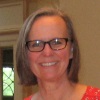One of the ongoing questions concerning MOOCs is whether and to what degree it is possible to create a sense of a writing community, at least in a traditional sense. Based on your experience with MOOCs, how would you comment on this issue?
Community in a MOOC and Beyond
Building community and increasing student engagement within a MOOC can be studied in a variety of contexts. Joachim Griesbaum (2014) considered what students gain by acting as instructors in a MOOC, and Derrick Coetzee, Armando Fox, Marti A. Hearst, and Björn Hartmann (2014) explored how reputation systems function within MOOC discussion forums.
Other scholars urge instructors and students to develop a critical literacy with regard to how online instructional spaces function to (dis)connect users from the content created in the space. David Morgen and Pete Rorabaugh (2014) theorized that while "higher education has been mostly exploring how to export a serviceable replica of face-to-face culture into online space (short answer: we can't, and that culture has to be re-imagined in a fresh context) some of us have been interested in taking the networked values of viable online communities and dragging them across the boundary into our classrooms" (para. 6). This aspect of MOOC development was yet another area interviewees were asked to address.
 Kay Halasek: [W]e found that individuals from across the globe, regardless of their first language status, their professional status, [or] the degrees that they held. . . came together really around this desire and motivation to become better writers. The community that developed was one of shared interest [in developing a] collaborative understanding of how their roles as readers, writers, and peer reviewers could facilitate their own learning but also the learning of others. There is this community that developed, and we could see that happening in a number of places. One, in the way that they really valued peer review and how disappointed they became when others reviewing them didn’t take it as seriously because that sometimes happened.
Kay Halasek: [W]e found that individuals from across the globe, regardless of their first language status, their professional status, [or] the degrees that they held. . . came together really around this desire and motivation to become better writers. The community that developed was one of shared interest [in developing a] collaborative understanding of how their roles as readers, writers, and peer reviewers could facilitate their own learning but also the learning of others. There is this community that developed, and we could see that happening in a number of places. One, in the way that they really valued peer review and how disappointed they became when others reviewing them didn’t take it as seriously because that sometimes happened.
We had a Google Map in the course and we were watching it, and we had students put themselves on the map when they registered for the course. We were watching this map fill up all over. We were just shocked. We didn't expect that kind of response. We didn't expect that many people to be interested in this, and they were. And it was so interesting and exciting. Teachers couldn't put it down. We had to tell one of them, "Get up from your computer and walk away slowly. You have to leave it now." She was so into it, she couldn't leave it. It's a pretty interesting thing to be involved with, and it does make you feel a part of a global community.
I gave a talk at the Cs [Conference on College Composition and Communication]. To quote myself if you will, one of the lines I had is, "If the lecture hall is, in Paulo Friere's way of thinking of education, a sort of a primary example of the banking model of education (all that's wrong with education), then the MOOC seems to be sort of like the online shopping version of higher education." Because not only is it something that you are doing, you're doing it alone and at your own pace and not really even needing to make connections with other people. To me, the discussions in MOOCs are like drinking out of a fire hose conversation. It's not even really a conversation. It's impossible to make connections like that. You can't make a connection with ten thousand people; it just doesn't work that way. Other people have found different kinds of experiences.
Although what is interesting to me about the people who have found positive experiences in MOOC communities is the people who are building communities outside of the MOOC structure themselves. The people who reflect the most favorably about the kind of community-building aspect of MOOCs are talking about things like the Facebook groups that arise from MOOCs, the Twitter streams that arise from MOOCs, and things like that.
Then they also created a Google+ community on their own, so they had this kind of back channel where a number of them, and I want to say [there were] somewhere between 150-200 individuals who elected to go into that Google+ community. Then it became not so much a back channel because they invited us to join them.
There was a team of three building this course, and we had instructional design support. We had a grant, so we had two instructional designers (three, including me), a project manager, and the three instructors working on this course together. It was really wonderful to work as a team, and I hadn't done that with teachers before on an online class. I think that in this case, it was definitely the way to go. I think there should be more team design going on where the instructors have the say in what's taught, how it's taught, and then designers are able to provide the vehicle for the methodology that's required to get that done. We had probably the best situation. We had these amazing videographers who were also teachers; they taught digital video at our college, and they came in and just did some wonderful video work in the class, and that made it fun. We just threw ourselves into it as a team, so there was that piece that I think was really important.
Now, they recognized that not everyone participated and that was fine, but their concern came in when someone was not fulfilling the obligation, say of peer review, but went through the motions of participating in peer review. Only those individuals who submitted a piece of writing were then prompted to complete the peer review. So it was a kind of gift culture, right? I submit my piece of writing, and as a gift and in response, you give me the gift of your peer response. They really did establish these kinds of community guidelines for what that might look like because we weren't stepping in to say, "You didn’t do what you were supposed to do with this peer review."
For the purposes of the project, I think it was essentially a logistical solution to a time problem. If we had done a traditional sort of thing where it was just me and Charlie [Lowe] responding to all of these essays, it would have taken three times as long. That being said, I think that it makes imminent sense for these kinds of collections to have these kinds of interactions. . . . I’m thinking, in particular, of collections of essays or maybe a journal with a theme to it. When you have a group of people who are all responding to each other in the same space, then you literally have conversations between the writers in that collection instead of this sort of non-connection. I mean I've had a number of essays in collections where I got the book or the journal or whatever and I’m like, "Oh, I didn’t know that so-and-so was being published in that." I think that that sort of connection up front makes a lot of sense. I know from everyone whom I talked to who contributed and was a part of it [that] it was a really rewarding experience for them, too.


 Pat James: For us, we had students in the class because their boss said, "If you pass this, I'll give you a raise." We actually heard that from several people. We had a group of 100 students from Mongolia who were getting a certificate from their community if they passed the course. There was a study group that was being run by a Peace Corps volunteer. There were people from all over who said, "Without this, I would have no access to education." And that was pretty amazing when that happens. You go, "Wow!" You don't realize who you're meeting online; you don't realize whose need you're meeting.
Pat James: For us, we had students in the class because their boss said, "If you pass this, I'll give you a raise." We actually heard that from several people. We had a group of 100 students from Mongolia who were getting a certificate from their community if they passed the course. There was a study group that was being run by a Peace Corps volunteer. There were people from all over who said, "Without this, I would have no access to education." And that was pretty amazing when that happens. You go, "Wow!" You don't realize who you're meeting online; you don't realize whose need you're meeting. Steve Krause: As a participant, one of the things that I've thought and continue to think is how oddly lonely MOOCs as a space are. Because even though it is tens of thousands of people, it really just doesn't seem like there is a there there, in terms of people around you.
Steve Krause: As a participant, one of the things that I've thought and continue to think is how oddly lonely MOOCs as a space are. Because even though it is tens of thousands of people, it really just doesn't seem like there is a there there, in terms of people around you.  Denise Comer: What I can say is that through the Google Hangout workshops I did with MOOC learners, I [became] so excited to meet people from around the world and have them talk to each other about writing. Really the funnest part for me of the whole experience—these strangers that I would never have encountered getting to talk with them. Then I have had several interchanges or I'd get emails or see stuff on the forums from people who are enthusiastic. They don't have to like everything in the course, but they are taking ownership of their own writing. That is really exciting.
Denise Comer: What I can say is that through the Google Hangout workshops I did with MOOC learners, I [became] so excited to meet people from around the world and have them talk to each other about writing. Really the funnest part for me of the whole experience—these strangers that I would never have encountered getting to talk with them. Then I have had several interchanges or I'd get emails or see stuff on the forums from people who are enthusiastic. They don't have to like everything in the course, but they are taking ownership of their own writing. That is really exciting. Bill Hart-Davidson: I have a couple of thoughts that run pretty consistently with what we now know to be the trends of actual people who do MOOCs and complete them and who do well in them. That is, they tend to be people who are already pretty advantaged in the area of higher education. I know I’ve seen some work that shows that the people who get the most out of MOOCs already have advanced degrees, so they are good learners. They are self-sufficient learners, and they probably have a lot of learning resources at their disposal to fill gaps. I know that was completely the case with me, taking the Social Network Analysis class [through Coursera]. I could just look up the research she was citing if I wanted to know more and read the actual stuff which I did quite a lot. If I needed help, I had people I could turn to who know statistics, or knew this or that, or knew how to install the software. I was intensely aware even going through this, "Oh, this is not for a beginner. Don’t try this at home because I have a research university in my back yard that is helping me learn from this."
Bill Hart-Davidson: I have a couple of thoughts that run pretty consistently with what we now know to be the trends of actual people who do MOOCs and complete them and who do well in them. That is, they tend to be people who are already pretty advantaged in the area of higher education. I know I’ve seen some work that shows that the people who get the most out of MOOCs already have advanced degrees, so they are good learners. They are self-sufficient learners, and they probably have a lot of learning resources at their disposal to fill gaps. I know that was completely the case with me, taking the Social Network Analysis class [through Coursera]. I could just look up the research she was citing if I wanted to know more and read the actual stuff which I did quite a lot. If I needed help, I had people I could turn to who know statistics, or knew this or that, or knew how to install the software. I was intensely aware even going through this, "Oh, this is not for a beginner. Don’t try this at home because I have a research university in my back yard that is helping me learn from this."